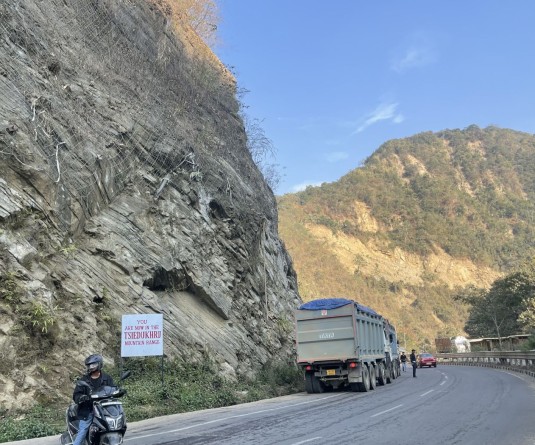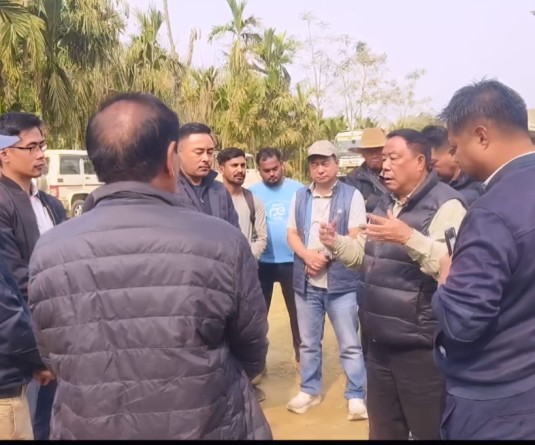Former diplomat, Sanjay Bhattacharya speaking during the G-20 University Connect programme at St. Joseph University on April 20. (Morung Photo)
Morung Express News
Dimapur | April 20
The G-20 University Connect Programme touched down in Nagaland on April 20. The programme is an outreach programme, in the form of a lecture series being held in universities across the country, primarily targeting students.
The Nagaland leg of the lecture series was delivered by former diplomat, Sanjay Bhattacharya. The event was hosted by St. Joseph University in collaboration with the Ministry of External Affairs, Research and Information System and NETRA (North East Training, Research, and Advocacy) Foundation.
Bhattacharya, in his address, focused on the priorities of the G-20, a collective of 19 countries and the European Union that represents 2/3rd of the world population and 80 percent of the world GDP.
With India assuming the Presidency, he said that the role is not only to arrange meetings but also to initiate new ideas at a “very difficult time in our civilizational history,” including the challenge of climate change, and bringing to the forefront the fears and views of the “global south.” “We have just come out of a pandemic and we have conflicts. We have economic downturn. There is fear of inflation and recession,” he said, while stating that these have had direct impact on energy and food availability. He added that there is also greater polarisation with the Russo-Ukraine conflict.
In such a global setting, he said that the priorities are to work for a people-oriented development process emphasising on sustainability and inclusivity and accelerating the Sustainable Development Goals. “Sharing with the world the ethos of India” is another major priority of India’s Presidency of the G-20, he said.
In the energy sector, he said that the target is to shape a “greener world” by funding “green growth” and bringing about a new wave of energy sources and production. He added that by 2030, India is targeting to enhance its energy needs on renewable sources to 50 percent.
While stating that food security has become more urgent because of the effects of climate change affecting food , he emphasised on building trusteeship with nature in terms of not only with the natural environment “but also our internal self.”
A sign of inadequacy…
Youth and women empowerment is another core area that India is focusing on, he said, while adding that challenges has to be tackled by collaboration, not by conflict. “At the end of the day, our objective is to build a better world. We would like you all to be more engaged,” he said.
In the question and answer segment, Bhattacharya was asked by a student on the government’s focus on empowering women juxtaposed by the hostility to women participating in decision-making, especially in Nagaland. He responded that it is a sign of “inadequacy of the system” and “an area we have to address.” While admitting that it is true for much of the country, he said that women of Nagaland are particularly disadvantaged as far as political representation is concerned.






